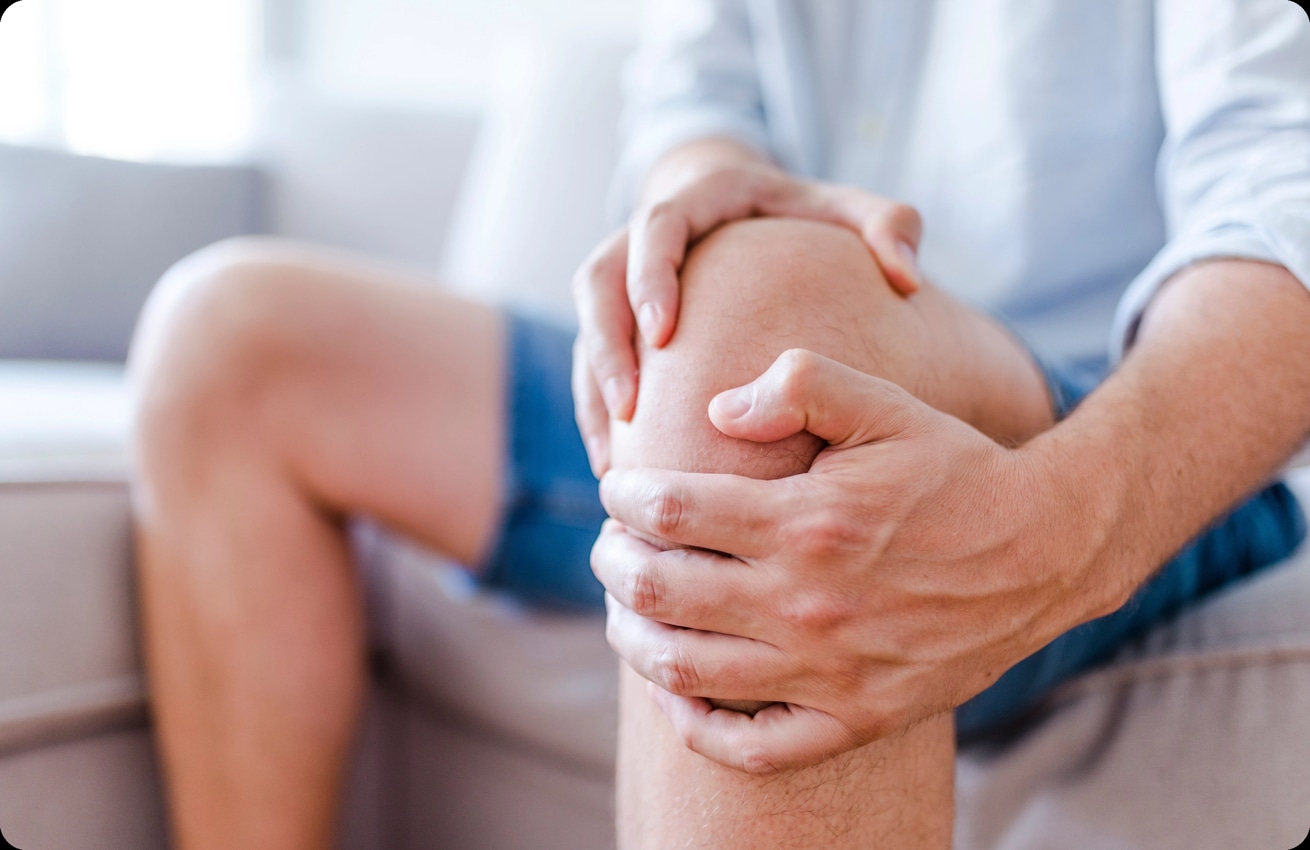Diagnosis and Treatment of Medial Collateral Ligament (MCL) Injuries in Wake County

What is an MCL Injury?
An MCL injury is a sprain or tear in the medial collateral ligament. The MCL is a band of tissue that runs along the inner edge of your knee, which connects your thigh bone to your shin. The MCL keeps the knee stable and prevents it from bending inward. When the MCL is damaged, your knee can overextend itself or bend too far in a certain direction, resulting in injury.

Causes and Types of MCL Injuries
MCL injuries can occur during activities that involve bending, twisting, or a quick change of direction. People who play football, hockey, or other high-impact sports may injure their MCL this way. Types of MCL injuries include:
- Mild or Grade 1: The ligament is mildly damaged in a Grade 1 sprain. It has been slightly stretched but is still able to keep the knee joint stable.
- Moderate or Grade 2: A Grade 2 sprain stretches the ligament to the point where it becomes loose, often referred to as a partial tear.
- Severe or Grade 3: A complete tear, or Grade 3 sprain, happens when the ligament has been split into two pieces and the knee joint is unstable.
Symptoms of an MCL Injury
There are several signs and symptoms that point to an MCL injury. Several hours after your injury has occurred, pain may increase and it may become harder to move your knee. Common symptoms include:
- Pain on the inside of your knee
- Swelling or tenderness over the site of the injury
- Instability (the feeling that your knee is giving way)
- Bruising
How are MCL Injuries Diagnosed?
Your orthopedic doctor will assess your knee and ask questions about your medical history. He or she will also ask how you injured your knee and what your symptoms were at the time of the injury. During your physical examination, your doctor will check for range of motion, swelling, and tenderness to determine the severity of the injury. Imaging tests, such as an X-ray or MRI, may be used for further diagnosis.

Treatment Options for MCL Injuries at Raleigh Orthopaedic
Injuries to the MCL rarely require surgery. Most MCL injuries can be treated at home using conservative methods. However, in some cases, surgery may be needed to repair the damaged ligament.
MCL injuries can usually be treated with rest, ice, and anti-inflammatory medicine. Your doctor may suggest that you use crutches and wear a brace that protects your knee but still allows for some movement. You will likely need to reduce your activity for a few weeks while the knee heals. Elements of nonsurgical treatment for MCL injuries include:
- Ice – Put ice or a cold pack on your knee for 15-20 minutes at a time, with at least 1 hour between icing sessions. Do not use chemical cold products (“blue” ice) directly on the skin.
- Bracing – If your doctor recommends a brace, it can help to support your knee while it heals.
- Anti-inflammatory drugs – Medications such as ibuprofen or naproxen can help to reduce pain and swelling.
- Physical therapy – Your doctor may suggest stretches or strengthening exercises to restore function to your knee and strengthen the leg muscle that supports it.
During MCL surgery, your doctor will make small incisions in your knee and insert an arthroscope – a thin, tube-shaped instrument. Methods for reattaching or reconstructing the ligament can vary. Options include using a portion of the patellar tendon (which connects the tibia and the kneecap) or the hamstring tendon (from the back of the thigh). MCL surgery is typically an outpatient procedure, so an overnight stay in the hospital is not necessary.

Recovery Time After MCL Surgery
Recovery from MCL surgery usually takes between nine and twelve months. After surgery, you will be able to return home the same day. Crutches and knee braces will be required to move for about six weeks. After one to two weeks, your doctor will remove your stitches and check on the status of the knee. You will most likely need some sort of physical therapy to get your knee back to working and moving properly.
Can MCL Injuries Be Prevented?
The best way to prevent MCL injuries is to strengthen and condition the muscles in the leg that protect your knee. Stretching is another great way to improve flexibility and stability in the knee, which can also prevent injury. Preparing the body for an intense workout by warming up and cooling down before and after exercise is a great way to avoid injury. It is very important to wear proper footwear during sporting activities or workouts. Wearing a knee brace while training will improve stability and reduce the chances of buckling.

Get Treated for MCL Injuries at Raleigh Orthopaedic
At Raleigh Orthopaedic, our knee specialists have experience treating a wide range of knee conditions, including MCL injuries. We will work with you to understand the full extent of your injury and create a customized treatment plan that promotes a positive recovery. To learn more about our orthopedic care services, please contact us today or find a clinic near you.














